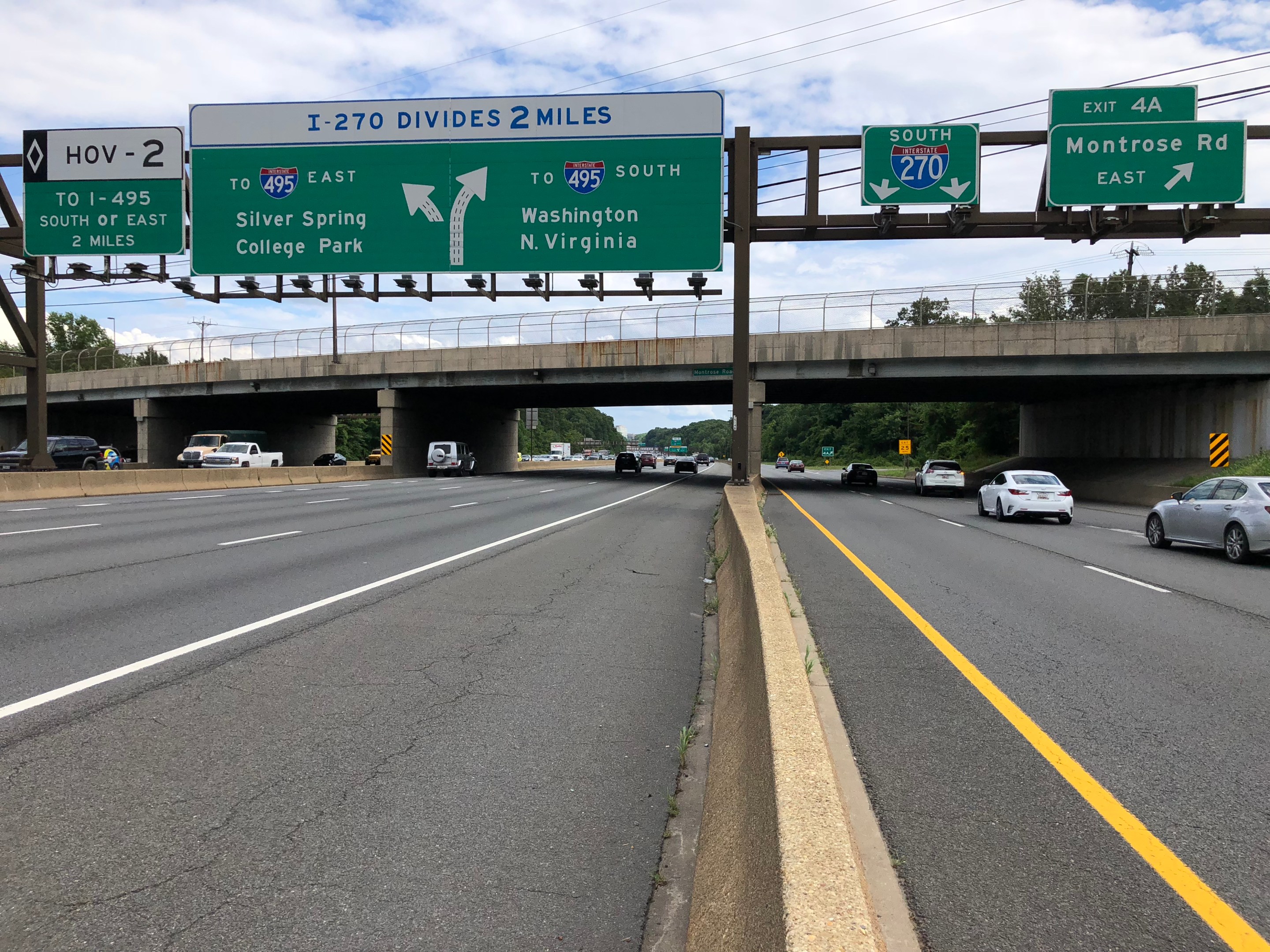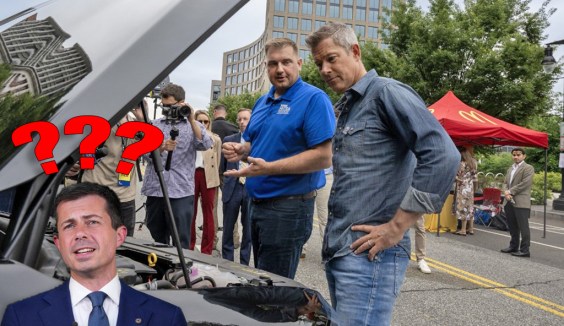
It's well known to sustainable transportation advocates that our transportation sector is the largest source of carbon emissions in the United States — and cars and small trucks account for the largest share of this pollution. Still, people frustrated with congestion on their commutes often clamor for building more and bigger highways. The reality is that these projects usually increase emissions without making getting around any easier, yet elected officials keep forging ahead with them.
Gov. Larry Hogan's proposed managed lane expansions to I-495 and I-270 is a textbook example. The stated purpose of this project is to reduce congestion. But studies show that highway expansions don’t really relieve traffic — they can actually increase the number of car trips residents take, with a corresponding increase in pollution. Though new highway lanes may briefly relieve traffic, those temporarily-increased travel speeds entice more drivers to use the highway, inevitably leading to increased congestion in the not-so-long term.
This effect, dubbed “induced demand,” has been studied and proven time and again by transportation researchers. Officials even observed this phenomenon a decade after the most recent expansion of I-270 itself, in 1989; by 1999, traffic levels exceeded those predicted for 2010, and “traffic congestion had already returned to unacceptable levels.”
Today, Maryland officials seem to have forgotten this precedent as they plan to expand the highway again.
More and wider highways also lead to spread-out communities that are difficult and dangerous to get around without a car. Once these communities are built, they are very difficult to change, even as people’s preferences shift toward wanting to live in denser, more walkable neighborhoods. Highways are also extremely expensive to maintain in a safe condition, and more highway construction is a risky bet at a time when Maryland is projecting long-term cuts to transportation budgets due to the impact of COVID-19.
Could we fix the problems of highway expansions by electrifying all our vehicles? Electric cars are critical to meeting our climate goals, but we also need to work to reduce the amount of vehicle miles traveled as soon as possible to address traffic-related air pollution, roadway deaths, and social inequities aggravated by the high cost of owning and operating a car.
Black and Latino Maryland residents are disproportionately exposed to harmful air pollution from vehicles, and the highway expansion stands to exacerbate this inequitable exposure.
Dozens of public interest groups in the Maryland and DC area, along with the regional planning board and local elected officials, oppose the I-495 and I-270 expansion project. Nevertheless, in late January, Hogan and the Maryland Department of Transportation selected a design alternative that adds four lanes to stretches of the Beltway and I-270.
It is time for Maryland to shed obsolete highway-focused traffic solutions, and pursue alternative strategies that give residents more, and cleaner, choices for how to get around. We should invest in transportation and housing infrastructure that enables people to travel by walking, biking, via transit, or with a car for necessary trips. This will go great lengths to reducing our collective carbon footprint and fostering a more just society.
We need to recognize highway expansions don’t solve traffic congestion, but do pose a real threat to our climate. In 2021, we should not allow our elected officials to build new coal plants — and for the same reasons, we should also reject massive highway expansions like this.
Eyal Li is a campaign organizer for the Clean Transportation program at the Union of Concerned Scientists






